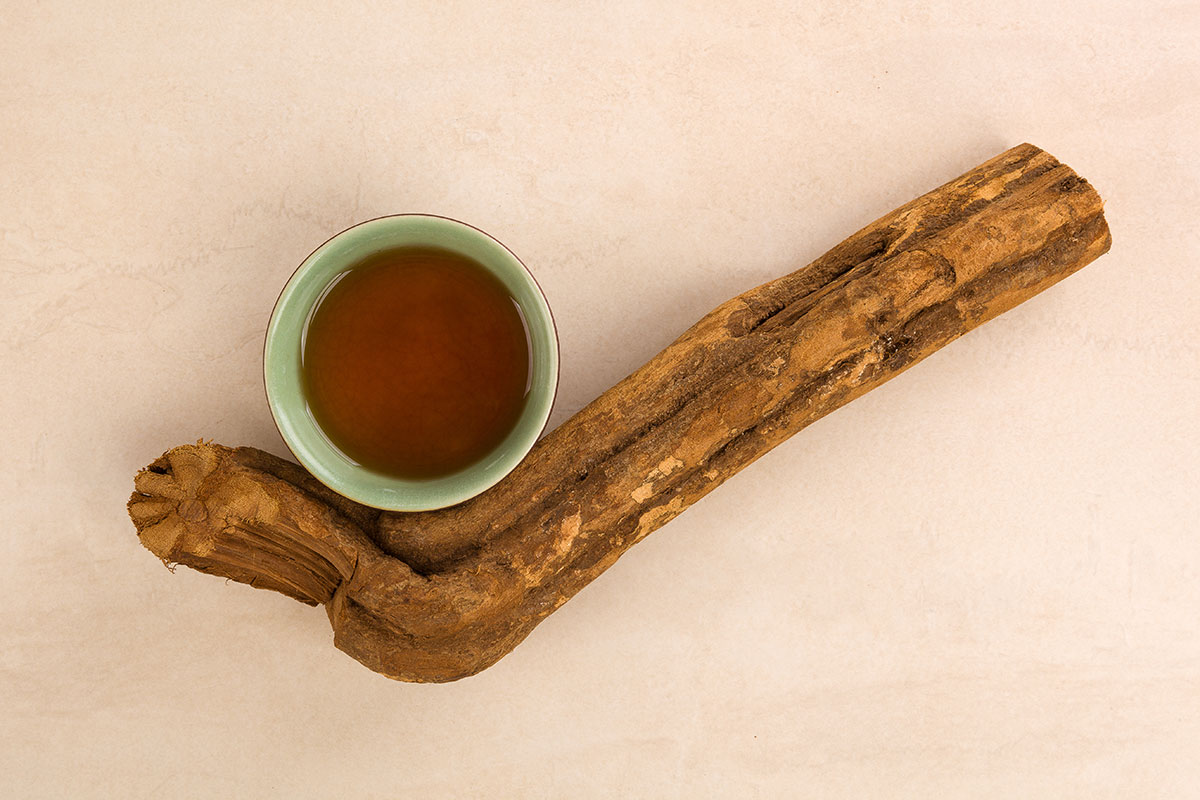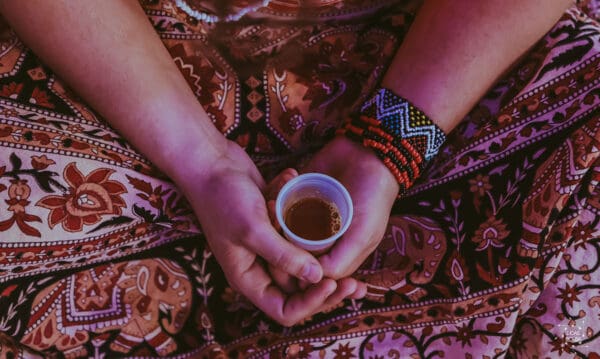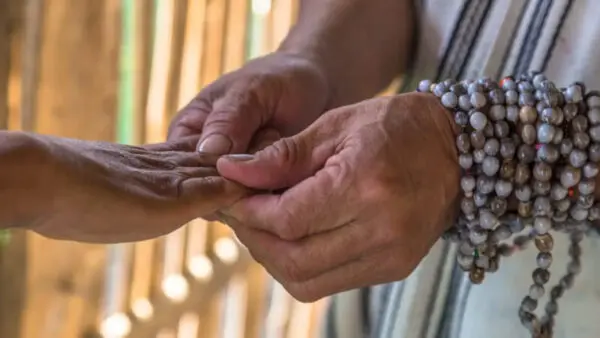There has been a surge of interest in ayahuasca retreats in recent years, as reports of successful entrepreneurs, authors, coaches, and cultural icons tout its transformative effects in their daily lives.
Many people have started to wonder how ayahuasca might help them, too. For this reason, ayahuasca retreat centers are becoming more sought-after than ever before.
What makes an ayahuasca retreat center legitimate? What exactly is ayahuasca, and what should be expected from such an experience? Read on for answers to some of the most common questions about choosing an ayahuasca retreat.
What is ayahuasca?
First and foremost, ayahuasca is a vining plant native to South America. The word also refers to the brew made from two plants for religious and medicinal purposes by the indigenous people of the Amazon, which is what initially comes to mind for most who have heard anything about it.
Ayahuasca is used in ceremony and is known to produce hallucinations and other deep psychological encounters that people have found to be transformative, whether it be reckoning with trauma or a greater feeling of connection to the universe (among other personal insights and types of healing). Many seek ayahuasca to aid the treatment of mental health issues or struggles with substance use. Whatever the case, profound results have been reported by those for whom the ceremony has been a positive experience overall.
The process, however, is not an easy one. In an ayahuasca ceremony, participants often purge both emotionally and physically, sometimes causing anxiety and distress. The psychological experience can be intense, and for some people brings up unknown or unprocessed trauma and difficult realizations. Physically, a person can experience uncomfortable purging in the form of diarrhea, vomiting, or sweating. However, many claim that the physical purging is an important and ultimately beneficial part of the process.
Ayahuasca is consumed in the form of a brewed drink, which is made from the Banisteriopsis caapi vine and the leaves of Psychotria Viridis. Other ingredients may be added depending upon the tradition. The positive and challenging effects often ebb and flow, and differ from person to person according to the specific circumstances of an experience.
What should I look for in an ayahuasca retreat center?
Not every retreat center claiming to offer a life-changing ayahuasca ceremony does so in an ethical or safe manner. It’s important to vet any organization for several signs of legitimacy prior to committing or paying for a retreat. Here is what to look for.
Ensure the center honors sacred reciprocity
For thousands of years, indigenous people in South America have used ayahuasca as a sacred medicine and part of spiritual ceremonies. It is therefore incredibly important that the recent fascination and popularity of ayahuasca does not threaten or exploit the well-being of indigenous culture in any capacity.
Sacred reciprocity is a practice of awareness and accountability, occurring when an organization prioritizes the social, environmental, and economical needs of the indigenous people for whom ayahuasca is an integral part of history and culture. Sacred reciprocity might involve supporting or employing indigenous people, providing vital resources to indigenous communities and helping them thrive, operating with transparency and awareness when it comes to sustainable harvesting policies, or honoring traditions in a genuine and meaningful capacity.
Stay close to home or go further afield
There are ayahuasca retreat centers in the United States that operate legally under religious protections. They may or may not have roots in the actual traditions of the indigenous Amazonian people or participate in ethical behaviors like sacred reciprocity. The Santo Daime church is one example of an approved religious organization operating in the United States, which incorporates indigenous Amazonian traditions with other elements of multiple belief systems like African animism and Folk Catholicism.
Legitimate ayahuasca retreat centers in South America are operated by indigenous people from the Amazon and are led by a shaman or guide who is trained in the sacred tradition of ceremony. Retreats abroad can be found in Peru, Ecuador, Colombia, Brazil, or other countries with cultural ties to ayahuasca ceremony like Costa Rica.
With the growing popularity of ayahuasca retreats abroad, however, it is important to do due diligence in researching the legitimacy of a retreat center, as there are organizations that attempt to take advantage of people by making false claims. These illegitimate centers often forego important health and safety screenings and practice unethical operational behaviors.
The importance of safety at an ayahuasca retreat
It’s critical that an ayahuasca retreat center performs a health screening for every participant. Certain health conditions can become dangerous or fatal after taking ayahuasca. For example, those with heart conditions should be carefully screened, as ayahuasca causes an increase in blood pressure. Reputable organizations will also make inquiries about mental health because ayahuasca is not safe for those with conditions prone to mania or psychosis (such as schizophrenia). Additionally, they will ask for a list of current medications, because certain pharmaceuticals like selective serotonin reuptake inhibitors (SSRIs for treating depression) should not be taken with ayahuasca. For additional information about health considerations concerning ayahuasca, read our FAQs About Ayahuasca .
Another factor to be aware of prior to selecting an ayahuasca retreat is the ratio of attendants to participants. The shaman or guide will lead the ceremony, but each individual can experience varying levels of psychological and physical distress or dissociative states that may require someone with experience to provide reassurance and care from time to time.
How much does an ayahuasca retreat cost?
The cost of an ayahuasca retreat varies greatly depending upon the location, duration, and organization itself. In any case, the experience of ayahuasca ceremony can be prohibitively expensive, raising concerns amongst members of the community that it is only accessible for a privileged few.
Within the United States, a retreat might be shorter in duration and cost less. However, each night of a 3-day retreat might still cost a few hundred dollars or more depending on the organization and is likely to also require expenses related to travel and accommodation needed beyond the days included for the retreat itself.
Retreats that occur abroad, particularly in South America, cost more and also require expenses like airfare and additional time off from work. Participants tend to spend much more time at these retreat centers and enjoy guided preparation and integration services as part of the experience. The total price of an ayahuasca journey abroad can cost $3,000 or more after travel and retreat expenses are accounted for. That being said, the benefits of an authentic ceremony, sacred reciprocity, bonding with other participants, and on-site integration may outweigh the burden of cost, as long as the retreat is reasonably affordable for a participant.
Closing notes and important considerations
Always research the reputation of both a retreat center and the shaman or guide. Taking the ayahuasca medicine may make a person vulnerable to inappropriate forms of manipulation or touching, making it very important to verify the qualifications of an organization and the person who will be leading the ceremony to avoid the possibility of fraud or abuse.
Pay close attention to the preparation instructions provided by the retreat center. Directions may include the avoidance of specific foods, medications, or drugs in the weeks and days leading up to a ceremony. Such precautions are not arbitrary; ayahuasca contains monoamine oxidase inhibitors (MAOIs) and N, N-Dimethyltryptamine (DMT), which have considerable potential to interact poorly with certain foods and other substances that can lead to serious physical and psychological health complications.
For additional information on ayahuasca and to learn about its risks and benefits, read Psychable’s Beginner’s Guide to Ayahuasca.







